Tenjin – Thanks to his talents, he got a high position despite being an outsider. They destroyed him. He avenged himself from beyond the grave.
 The Legend of an Outsider
The Legend of an Outsider
The rich mythology of Japan is full of gems – stories that can be drawn from it – borrowed and used for inspiration in our own lives. On the other hand, the colorful and diverse contemporary pop culture of Japan is also studded with references to these more and less known intricacies of Shinto mythology, and to fully understand and appreciate it, it's worth exploring successive stories from the shadows of ancient history. This will enrich both the feelings and reflections that a given game, anime, or Japanese film evokes in us, as well as it may inspire directly in life.
And so, we regularly offer you, dear Readers, further installments of Shinto mythology – either in the form of an analysis of influences in a given work of pop culture, or in the form of a cross-sectional description of a particular youkai, or kami, or in the form of retelling an interesting Japanese legend. Today, let's meet Sugawara no Michizane – a scholar and politician who transformed into the god of knowledge and enlightenment, incidentally taking revenge by decimating half of the Heian period Japanese emperor's court.
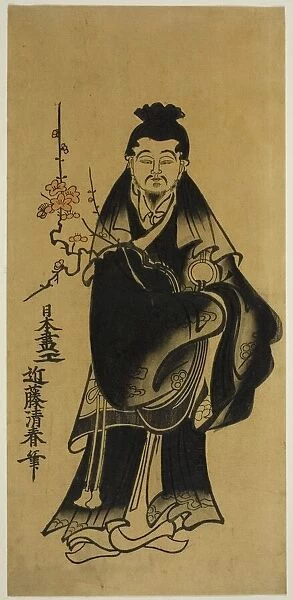
Fortunately, it's a legend, not life. Thus, justice triumphed (though only after our hero's death) thanks to supernatural threads (Michizane, after death, ensured that the Fujiwaras encountered many macabre misfortunes). Once Michizane had finished with those who had ruined his life, he became a god (kami), known as Tenjin, and is worshiped to this day in many contemporary Japanese temples. Especially by students.
The Tenjin-shinko cult, still alive in Japan, i.e., the faith in Tenjin, goes beyond simple worship. It constitutes a complex relationship between history, religion, and everyday educational practices, symbolizing not only respect for the past but also a continuous search for knowledge and enlightenment. Tenjin, as the patron of pupils and students, is present in the lives of many Japanese, who turn to him with prayers for success in learning and on academic tests.
Today's article will take us on a journey through the life of Sugawara no Michizane, from his beginnings as an outstanding scholar, through the dramatic events leading to his exile, to the extraordinary circumstances that, by making him a kami god, enabled revenge.
Life of Sugawara no Michizane
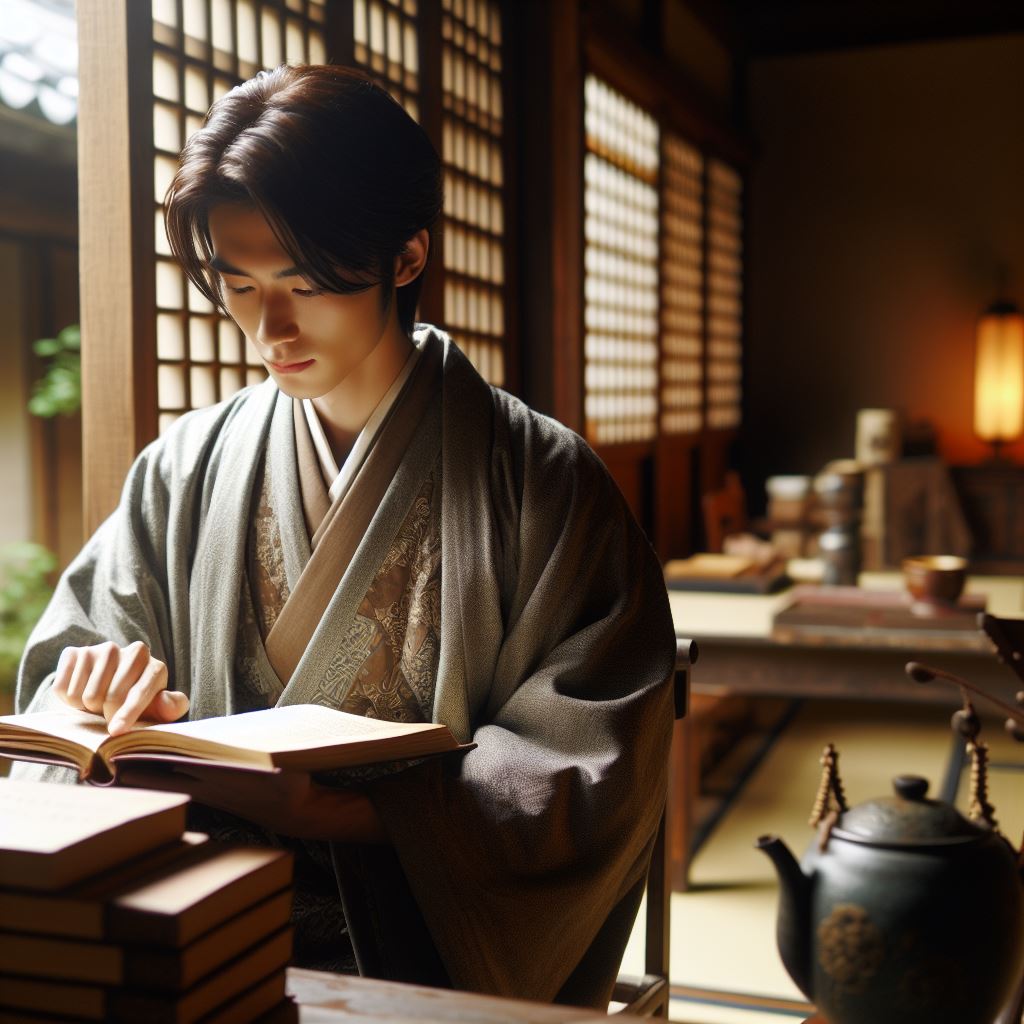
In the distant history of Japan, during the Heian period (794-1185), a time when culture and art reached unparalleled refinement, a figure was born whose legacy has survived the ages. Sugawara no Michizane (菅原 道真), born in 845, signaled his extraordinary literary talent from the earliest years.
Michizane was born in Heian-kyō (modern-day Kyoto) into a family with rich academic traditions. His father, Sugawara no Kiyotomo, was a respected scholar, which provided young Michizane access to the highest level of education. Even as a child, he showed an unusual ability to learn and create poetry.
His talent did not go unnoticed by the imperial court. Sugawara quickly gained recognition as one of the most promising scholars of his time. His literary skills and proficiency in Chinese classics opened the way for a career in state administration. At the mere age of 25, in 870, Michizane was appointed professor, and his career at the imperial court gained momentum.
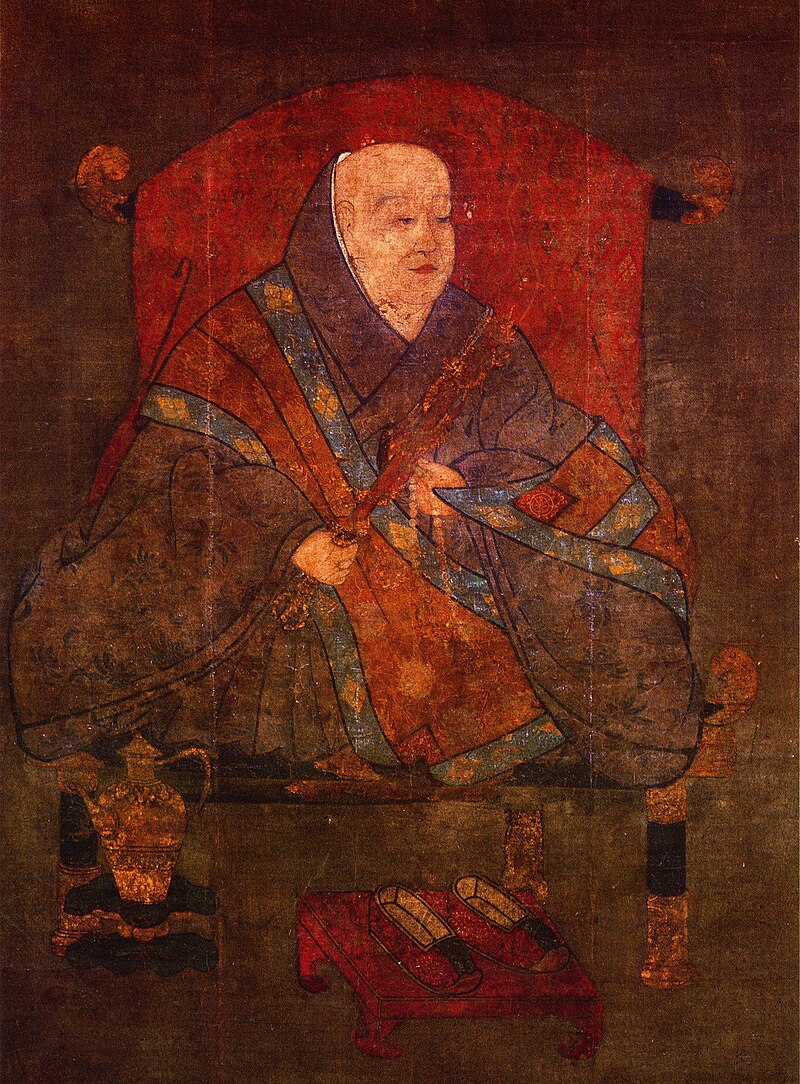
In 899, when Sugawara no Michizane reached the peak of his career, becoming the Minister of the Right (右大臣, Udaishin), his professional life seemed to fulfill all ambitions. This position, one of the highest offices in the empire, was the culmination of his scholarly and political achievements. It was a time of recognition of his talent, knowledge, and dedication to the state. However, this period of triumph quickly turned into tragedy. A conspiracy, orchestrated by influential members of the Fujiwara clan who envied his influence and achievements, soon turned his life into a nightmare.
Conspiracy
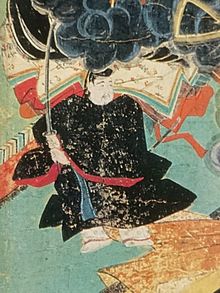
The conspiracy began with spreading rumors and false accusations, suggesting that Michizane was planning a rebellion against the emperor. Manipulated "evidence" and fabricated "testimonies" were presented at court as incontrovertible proof of treason. Malicious insinuations, supported by influential figures in the empire, quickly gained credibility, and Michizane, deprived of the opportunity to defend himself against such a massive attack, became a victim of political intrigue.
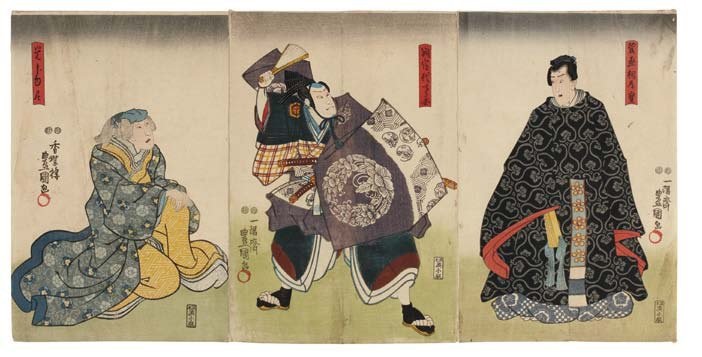
Exile
Falsely accused of conspiring against the emperor, Michizane was brutally torn from the life he knew and loved. In 901, his fate changed irreversibly - he was exiled to Dazaifu on the distant island of Kyushu. This exile was not just a physical separation from the capital and the court, which were the center of his life. It was also a symbolic isolation from the world and the culture he was passionate about, and the people he respected. Distanced from his loved ones and the intellectual ferment of Kyoto, Michizane found himself in deep loneliness, which became his daily reality. This alienation was deepened by his sense of injustice that had befallen him.
Loneliness, longing for home and his native city, and a sense of injury due to unfair accusations, became constant companions in the last years of Michizane's life. His suffering was a reflection not only of his personal drama but also of a larger, universal story of fighting injustice. In Dazaifu, far from his beloved Kyoto, Michizane continued to create poetry, expressing his feelings - sadness, longing, and thoughts on the transience of life. His words, steeped in deep melancholy and reflection on the fate of man, became an immortal testament to his spiritual struggle with longing and melancholy.
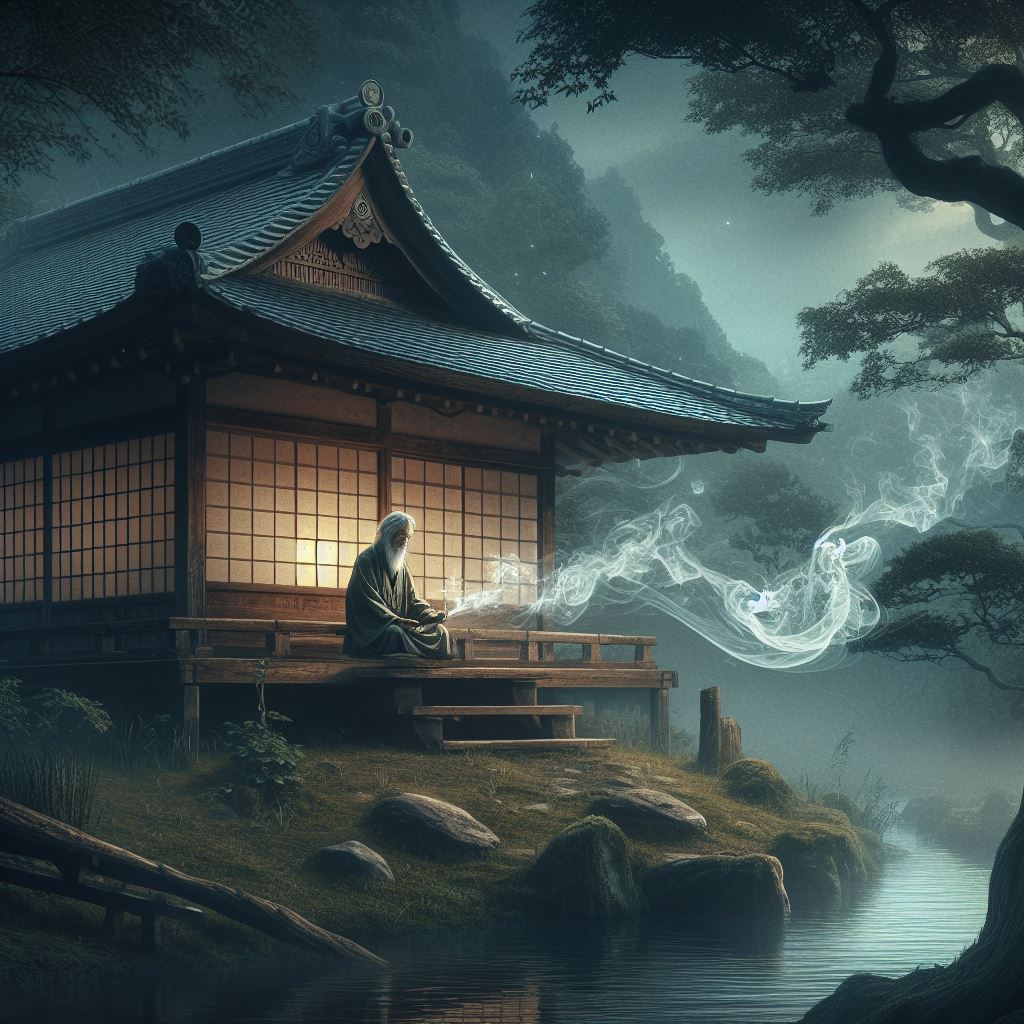
"Under the rainy sky,
no one escapes, so,
innocent, I wear my wet clothes
with no way to dry them."
あめの下のがるゝ人のなければや着てし濡れ衣干るよしもなき
- Sugawara no Michizane
Revenge from Beyond the Grave
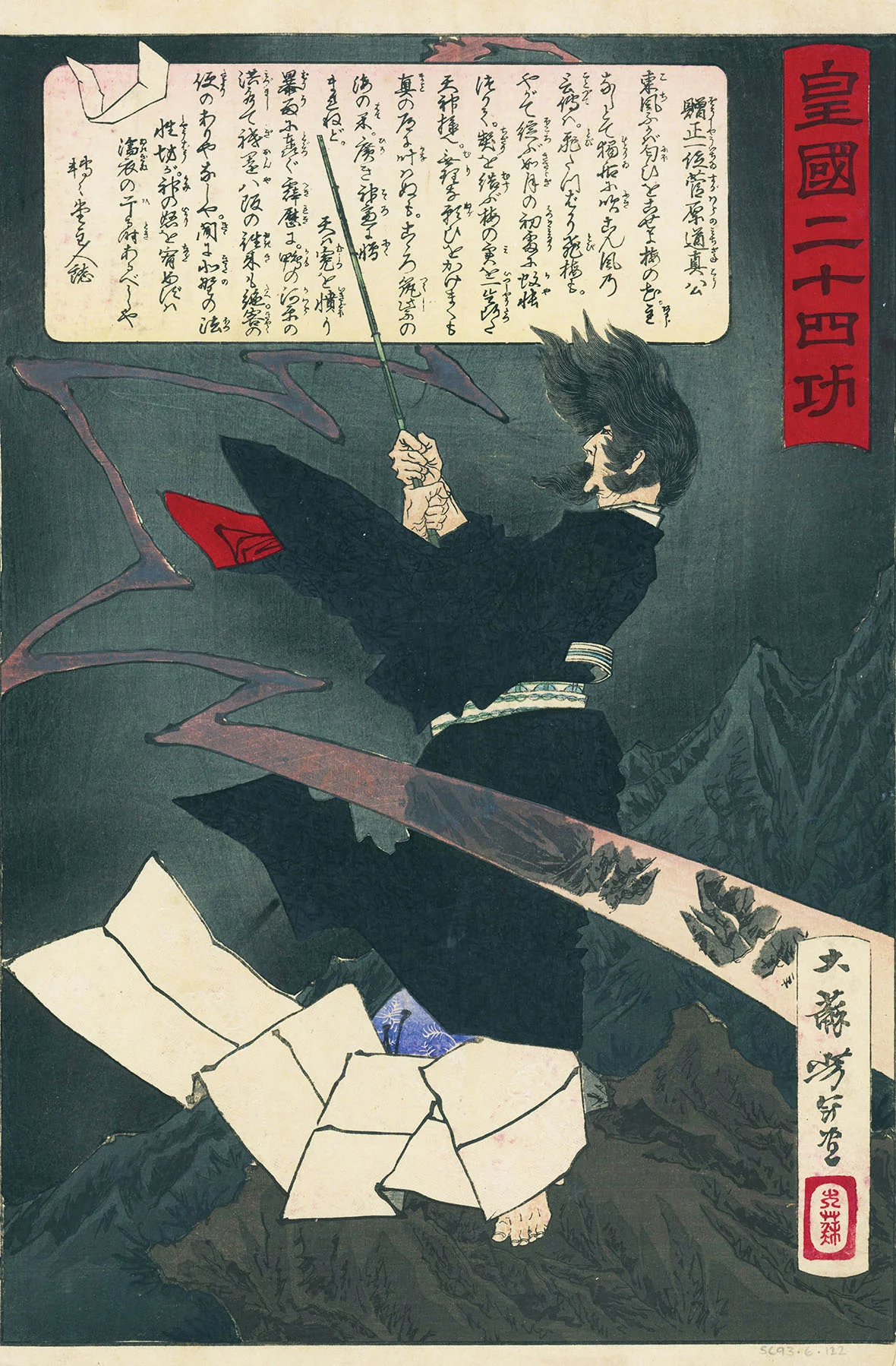
When the spirit of Sugawara no Michizane crossed the thresholds of immortality, opening the doors between worlds that should always remain separate, a series of events began that shook the foundations of the empire. It was not ordinary fate; it was revenge, merciless and relentless, that began to fill the air of Japan with a dense scent of blood.
First to die was Fujiwara no Tokihira, the architect of the conspiracy against Michizane. His death, sudden and without warning, was like a thunderbolt from a clear sky for all those involved in the intrigue. Then, one by one, those who had agitated against Michizane began to leave this world under mysterious circumstances - some due to tragic accidents, others due to unknown diseases that rapidly and mercilessly ravaged their bodies.
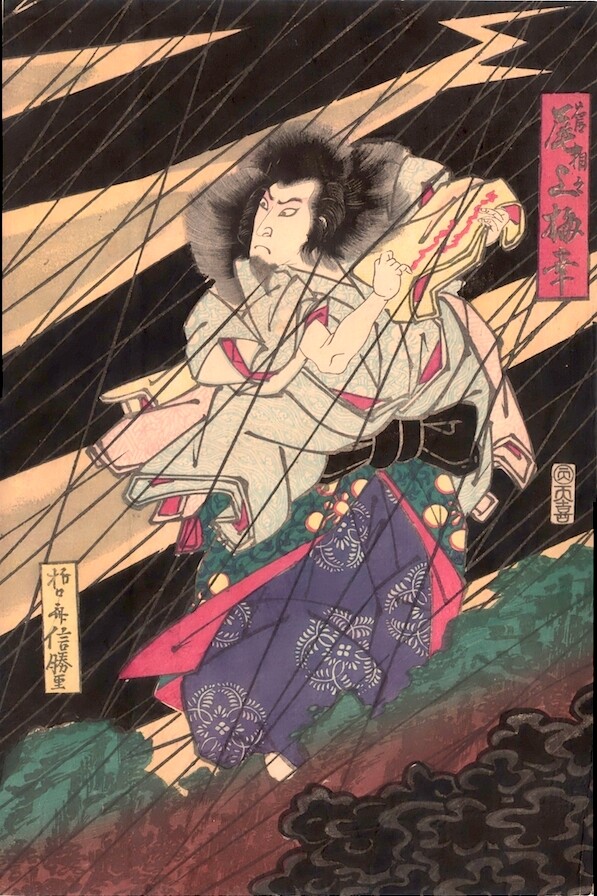
Eventually, death came for the successors to the throne. One by one, they were swallowed up under mysterious and tragic circumstances, and the imperial court was paralyzed with fear. People began to whisper that it was the spirit of Michizane wandering the earth, demanding justice for the wrongs done to him. These whispers turned into screams when the belief that the misfortunes befalling the country were the direct result of his cursed wrath began to dominate among the population.
 Rehabilitation
Rehabilitation
Faced with these terrifying events, the emperor and the imperial court realized that they had to quell the wrath of Sugawara no Michizane to restore peace to the country. In an act of desperation and deep humility, Michizane was rehabilitated, and all false accusations against him were officially withdrawn. However, what went down in history as the most significant was the deification of Michizane as Tenjin, the kami of wisdom and literature. This act was not just an attempt to appease his wrath; it was a recognition of his spirit and wisdom, which transcended the boundaries of death, giving rise to a cult that has survived the ages and continues to influence to this day.
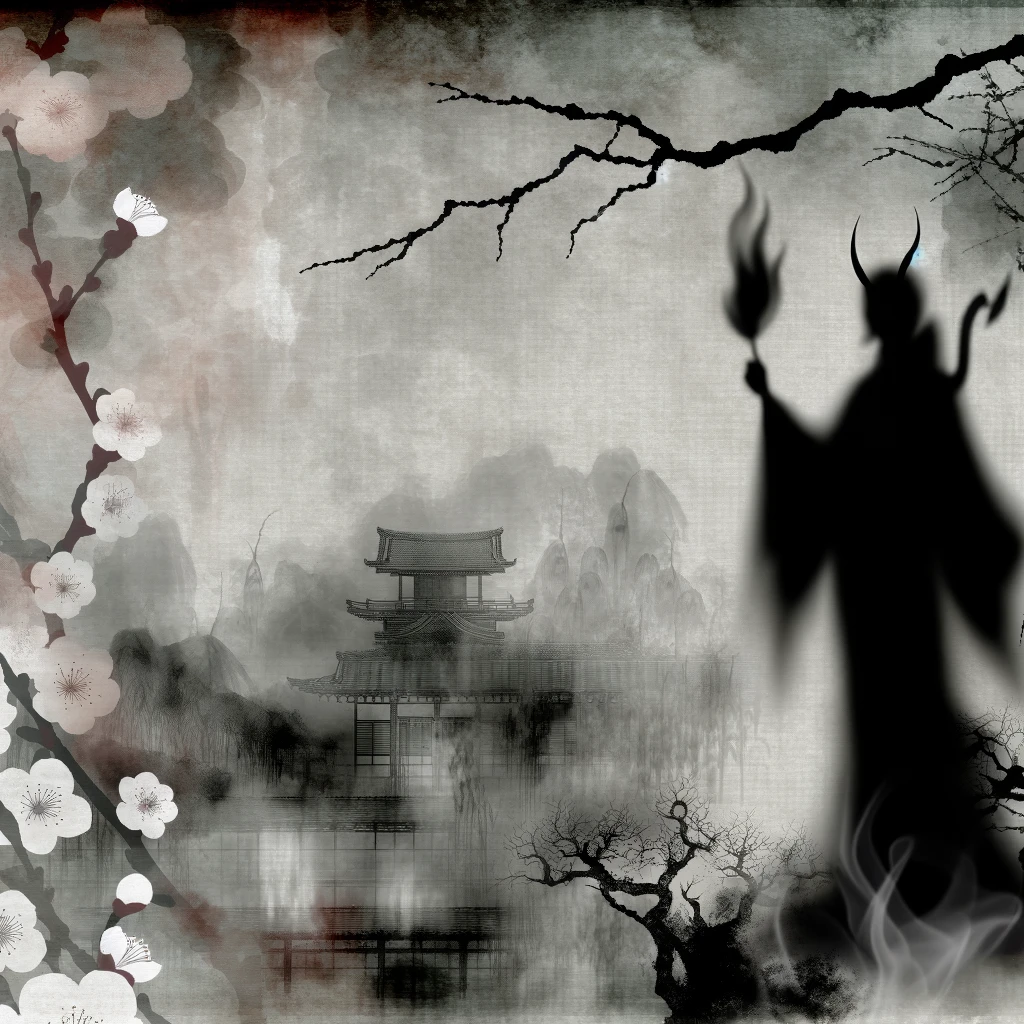
Thus, the legend of Sugawara no Michizane, through suffering and tragedy, transformed into a tale of the immortality of the spirit, whose desire for justice and knowledge transcended the boundaries of mortal existence. In the hearts of people, Michizane is no longer just a historical figure; he has become a symbol, a kami, who continues to inspire and lead as the eternal guardian of those seeking truth and enlightenment.
Tenjin Beliefs in Modern Japan
 Practices and Rituals Associated with Tenjin Worship
Practices and Rituals Associated with Tenjin Worship
The cult of Tenjin in Japan encompasses many practices and rituals that reflect reverence for the wisdom and knowledge of this kami. One of the most widespread customs is the practice of writing "ema" (絵馬) - small wooden plaques on which the faithful inscribe their prayers and wishes. Students and pupils often place ema in Tenjin temples, asking for success in exams and the acquisition of knowledge. Another important event is "Tenjin matsuri", a festival held annually, especially at Dazaifu Tenmangu, where devotees participate in ceremonies, processions, and offering of gifts to honor Tenjin and ask for his blessing.
 Key Tenjin Temples and Festivals in Japan
Key Tenjin Temples and Festivals in Japan
Dazaifu Tenmangu in Fukuoka Prefecture and Kitano Tenmangu in Kyoto are considered the two most important temples dedicated to Tenjin in Japan. Dazaifu Tenmangu, the burial place of Michizane, attracts millions of pilgrims every year, especially during the school and university exam periods. Kitano Tenmangu, founded in 947, is famous for its beautiful plum gardens that bloom in early spring. Both temples are central venues for the "Tenjin matsuri" celebrations, held on February 25th (the anniversary of Michizane's death) and July 25th, gathering devotees from all over Japan.
 Tenjin as the Patron of Education: Customs Related to Exams and Learning
Tenjin as the Patron of Education: Customs Related to Exams and Learning
Modern Japan regards Tenjin as the patron of education, as reflected in numerous customs and practices. Before entrance exams for schools and universities, students visit Tenjin temples to make offerings and pray for good results. A typical sight at these places are groups of young people, often accompanied by their parents, placing ema with wishes for success in learning. Additionally, many students carry "omamori" - amulets purchased in Tenjin temples, which are supposed to bring them luck and protection during exams.
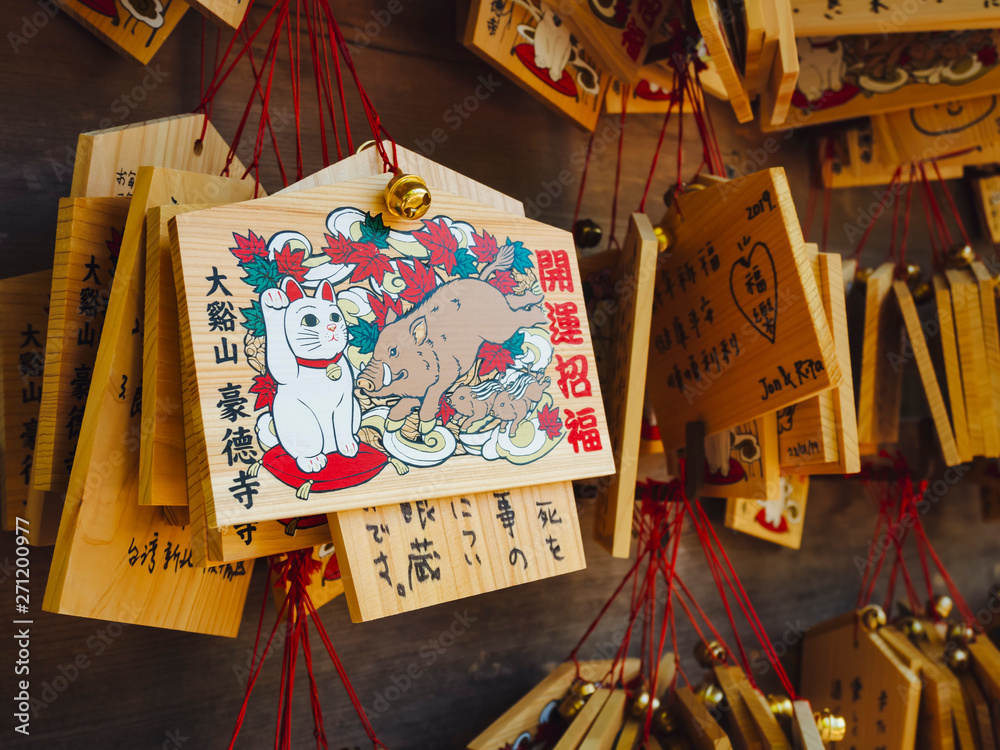
Sugawara Denju Tenarai Kagami: "Sugawara's Secrets of Calligraphy Mastery"
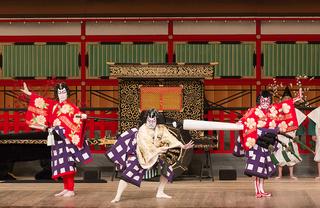
The story focuses on the life of our protagonist - Sugawara no Michizane. "Sugawara Denju Tenarai Kagami" is a rich and complicated tale full of tension, intrigue, and deep moral messages.
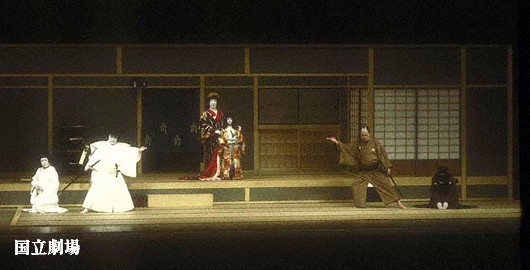
Political Action – The first acts focus on Michizane's political downfall, centering on the intrigues and conspiracies that lead to his unjust exile.
Family Values and Loyalty – The narrative intertwines the fates of three brothers, symbolizing loyalty to Sugawara and his ideals. Their fates are a test of virtue and honor in the face of adversity.
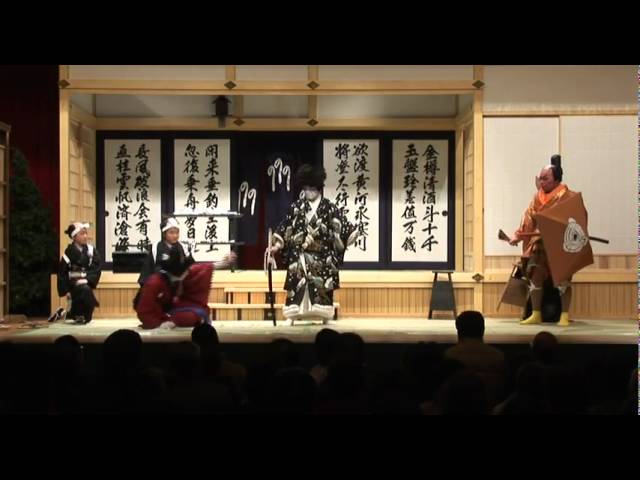
In the Kabuki tradition, "Sugawara Denju Tenarai Kagami" is performed with rich scenography, spectacular costumes, and characteristic acting, emphasizing the emotional and symbolic aspects of the story. Music and dance are also integral parts of the production, adding an aesthetic layer to the performance. In Nō theatre, the story is presented in a more subdued and symbolic manner, focusing on the emotional and spiritual depth.
"Sugawara Denju Tenarai Kagami" remains an important work in Japanese culture, not only as a theatrical piece but also as a medium conveying values and ideas associated with Sugawara no Michizane. Through its content and form, the play continues the tradition of honoring his memory as a kami of wisdom, education, and literature, reminding of the importance of these values in everyday life and culture.
Tenjin – The Kami of Wisdom and Education
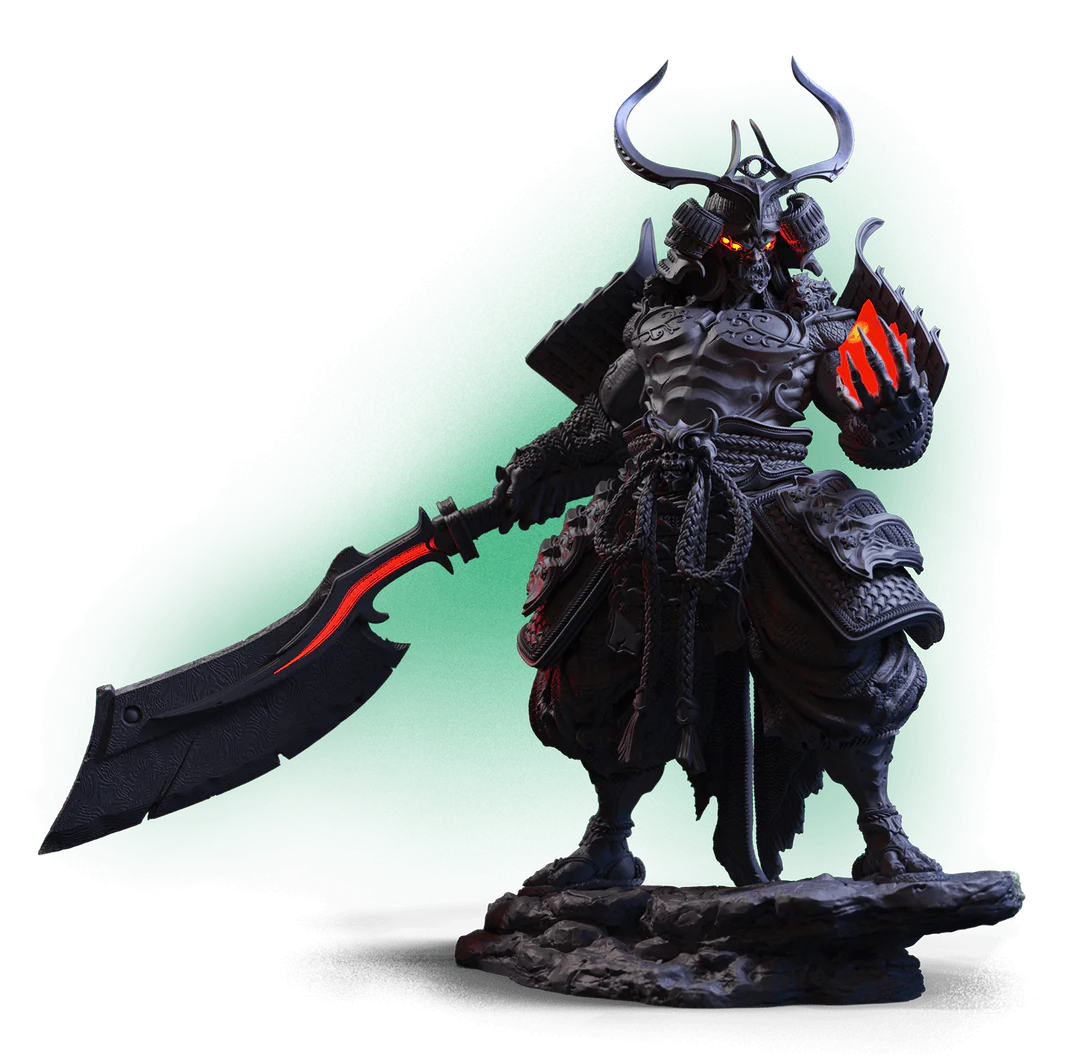
Tenjin is not just a story from 1200 years ago. He is still an icon and symbol in contemporary Japan. Dazaifu Tenmangu, one of the most important temples dedicated to Tenjin, is located near the Kyushu National Museum and several other educational institutions, making this place not only a spiritual center but also a hub of knowledge and learning. This symbolic location underscores Tenjin's role as the guardian of education and wisdom. Moreover, exam preparation schools have also developed in the immediate vicinity of this temple, further confirming how deeply the Tenjin cult is intertwined with education in Japan.
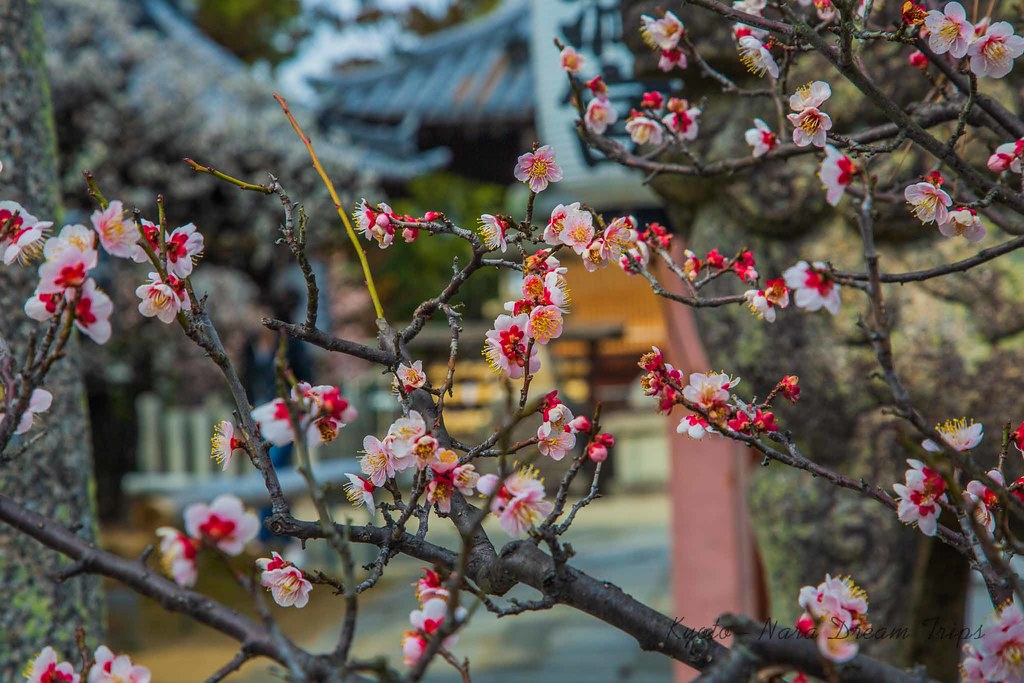
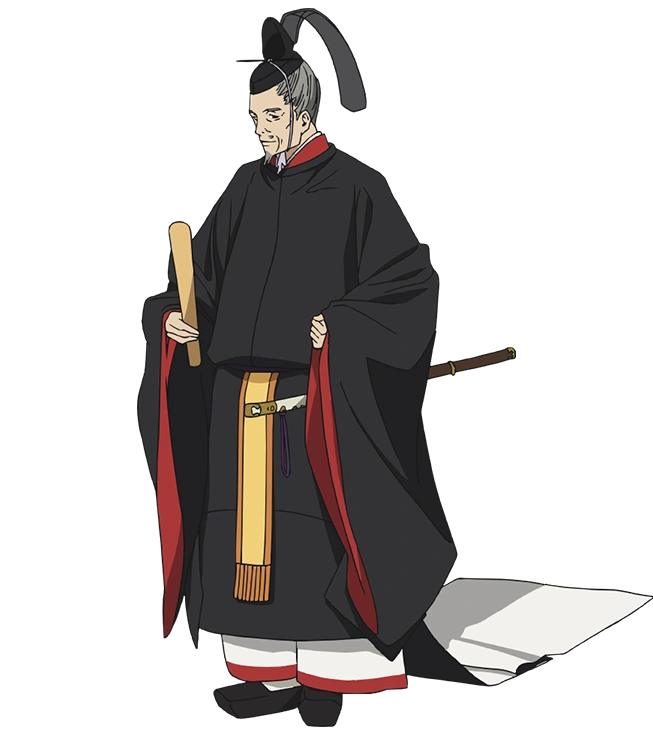
When the east wind blows, spreading the scent,
Plum flowers, do not forget spring
Even if your master is far away.
東風吹かば にほひおこせよ
梅の花 主なしとて
春な忘れそ
- Sugawara no Michizane
>>SEE SIMILAR ARTICLES:
Surprising Haiku: The Japanese Spirit of Minimalism in the 5-7-5 Rhythm
The Majime Mask - The Japanese Soul Torn Between Inspiring Ideal and Enslaving Whip
Extraordinary and Bizarre World of Kami: An Overview of Deities in Japanese Mythology
Japanese Gardens: A Piece of Art with a Surprising Ending - Discover the Secrets of Zen Gardens
"Strong Japanese Women"
see book by the author
of the page
未開 ソビエライ
An enthusiast of Asian culture with a deep appreciation for the diverse philosophies of the world. By education, a psychologist and philologist specializing in Korean studies. At heart, a programmer (primarily for Android) and a passionate technology enthusiast, as well as a practitioner of Zen and mono no aware. In moments of tranquility, adheres to a disciplined lifestyle, firmly believing that perseverance, continuous personal growth, and dedication to one's passions are the wisest paths in life. Author of the book "Strong Women of Japan" (>>see more)
Personal motto:
"The most powerful force in the universe is compound interest." - Albert Einstein (probably)
Mike Soray
(aka Michał Sobieraj)
未開 ソビエライ
An enthusiast of Asian culture with a deep appreciation for the diverse philosophies of the world. By education, a psychologist and philologist specializing in Korean studies. At heart, a programmer (primarily for Android) and a passionate technology enthusiast, as well as a practitioner of Zen and mono no aware. In moments of tranquility, adheres to a disciplined lifestyle, firmly believing that perseverance, continuous personal growth, and dedication to one's passions are the wisest paths in life. Author of the book "Strong Women of Japan" (>>see more)
Personal motto:
"The most powerful force in the universe is compound interest." - Albert Einstein (probably)
Mike Soray
(aka Michał Sobieraj)
Write us...
Ciechanów, Polska
dr.imyon@gmail.com
___________________
inari.smart
Would you like to share your thoughts or feedback about our website or app? Leave us a message, and we’ll get back to you quickly. We value your perspective!
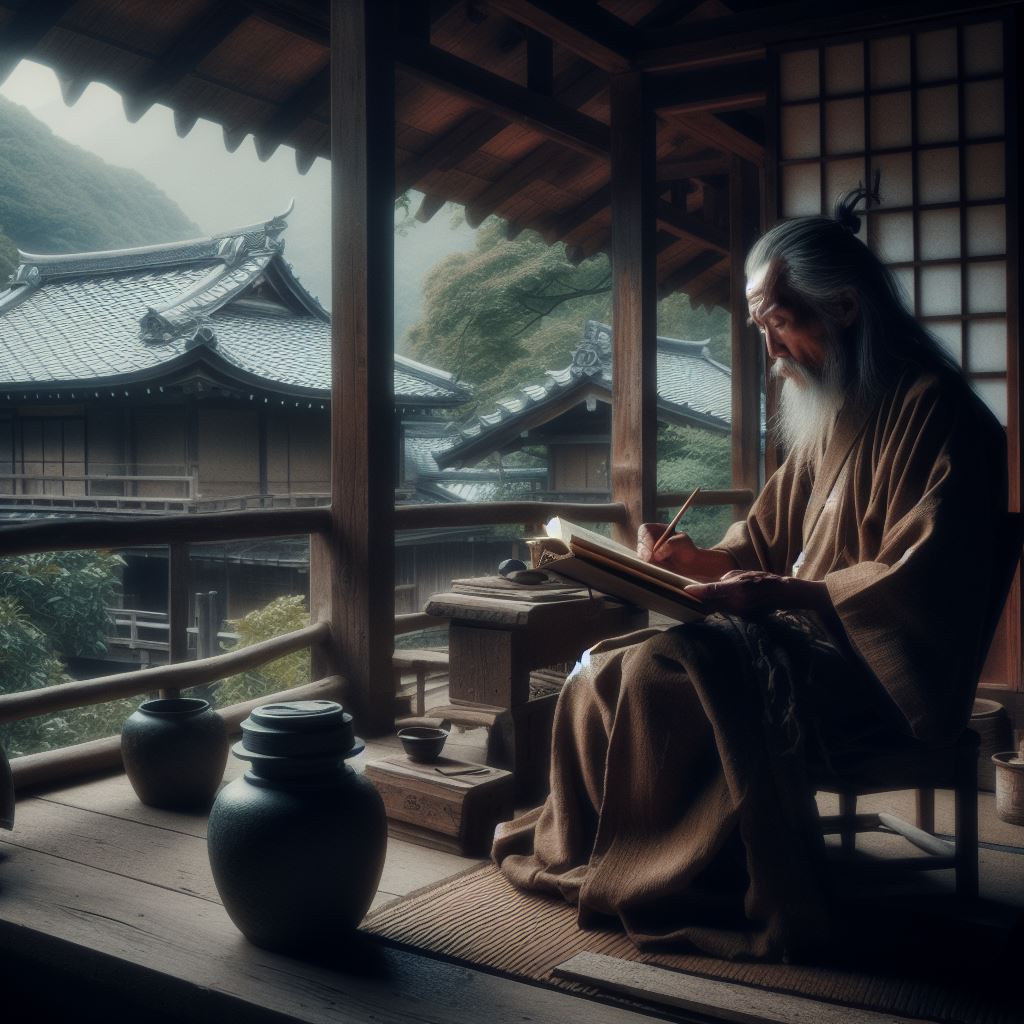 The Legend of an Outsider
The Legend of an Outsider 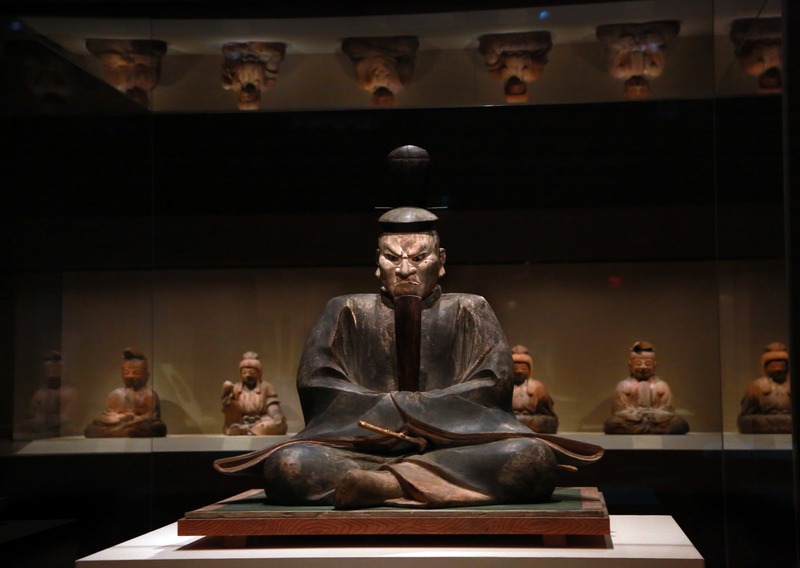

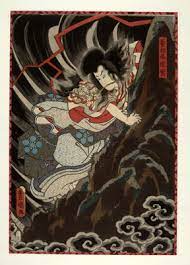 Rehabilitation
Rehabilitation
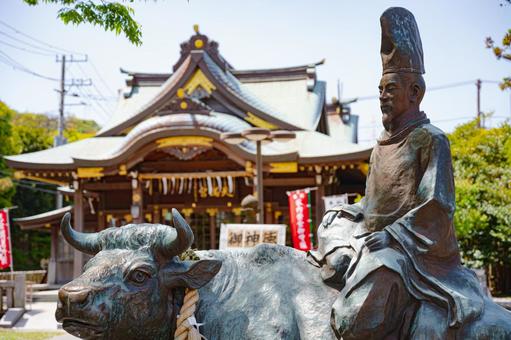 Practices and Rituals Associated with Tenjin Worship
Practices and Rituals Associated with Tenjin Worship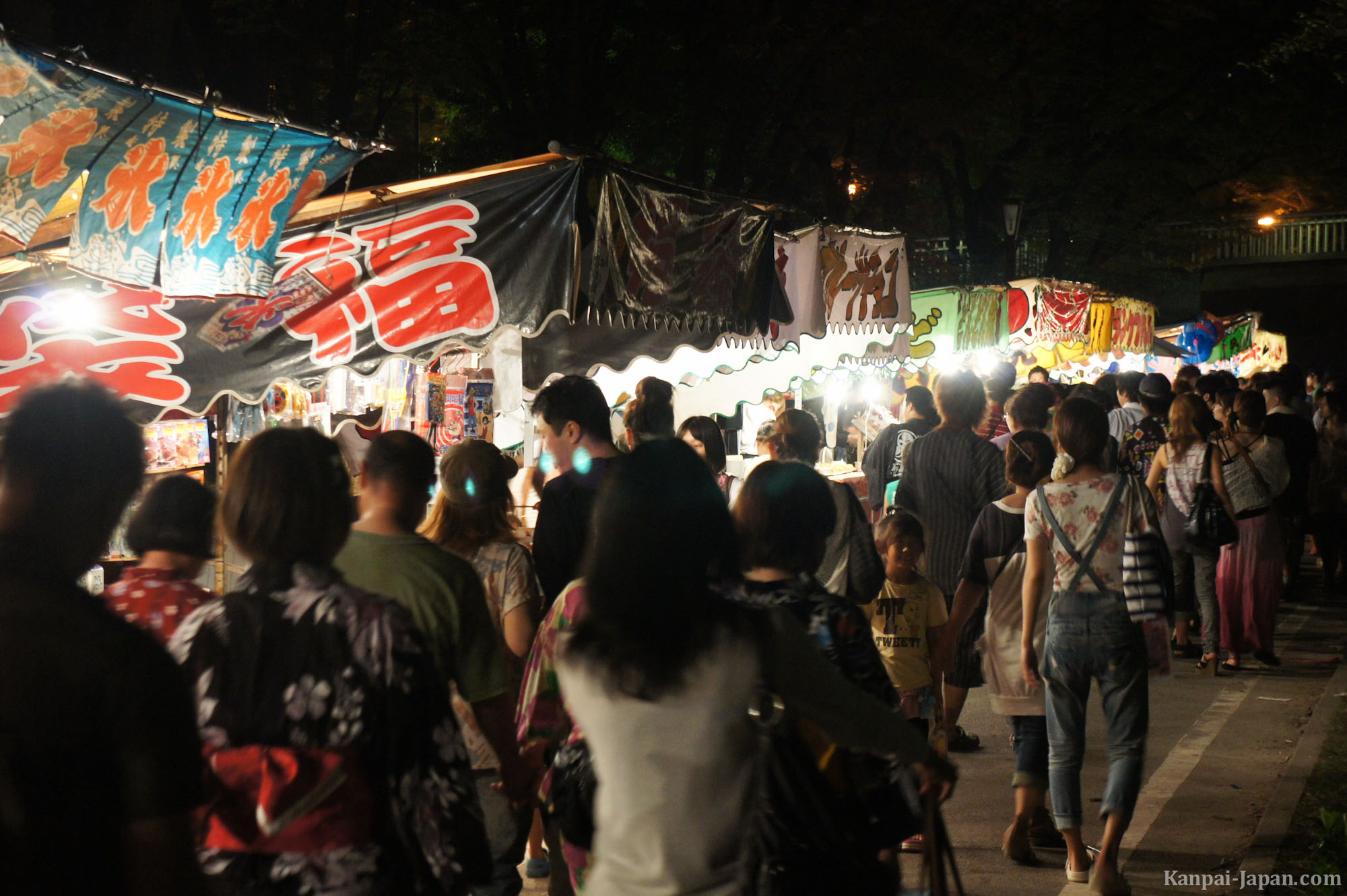 Key Tenjin Temples and Festivals in Japan
Key Tenjin Temples and Festivals in Japan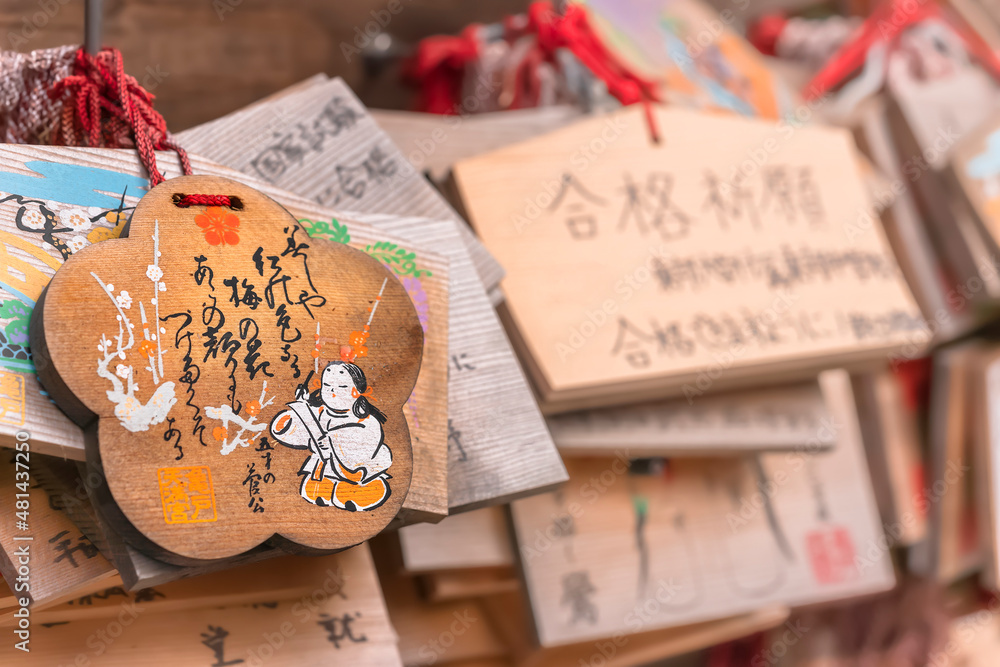 Tenjin as the Patron of Education: Customs Related to Exams and Learning
Tenjin as the Patron of Education: Customs Related to Exams and Learning

